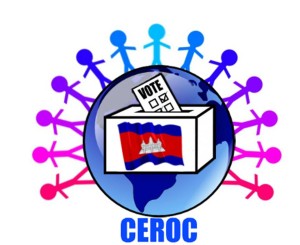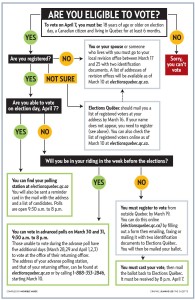Learning from the US to dispel MYTHS and We Need Right to Vote in Cambodia
Myths About Voting from Abroad
There are a number of common misconceptions about voting from abroad, which can prevent Americans abroad from exercising their right to vote. Please help us dispel these myths!
Myth #1 “I can’t vote. I don’t have a US address anymore.”
WRONG. Regardless how long you have lived outside the country, you always retain the right to vote in US Federal elections. Your legal voting address is the last place you resided prior to departing the US. (If you havenever lived in the US, many states will allow you to vote using the legal voting address of one of your American parents. Also, depending on state law, it could be that studying or summering in the U.S. is enough to establish residence. Check with local authorities.)
Myth #2 “I don’t need to register. I did it last time.”
WRONG. The law has changed. Voters living abroad need to mail in a ballot request every Federal election year. Yes, there are some places, like California, which permit “permanent absentee” registration. But, don’t forget that our votes are administered by thousands of different local authorities across the country, each with its own understanding of the law.Better safe than sorry – send a new ballot request every election year!
Myth #3 “They don’t even count overseas ballots.”
WRONG. Absolutely 100% false. By law, every properly executed absentee ballot must be counted before a final vote count can be certified. However, if the number of outstanding ballots – overseas or otherwise – is smaller than the difference between two candidates, a winner may be called before every last vote has been tallied. Nonetheless, all outstanding ballots are counted before the election result can be certified.
Myth #4 “One vote can’t make a difference.”
WRONG. Just look at recent election results. Florida 2000: George W. Bush wins the state – and the presidency – by a margin of 537 votes.Washington 2004: Democrat Christine Gregoire becomes Governor by just 133 votes. Minnesota 2008: Al Franken is finally seated in the Senate with a 312-vote victory.
Myth #5 “If I vote, the IRS will hassle me.”
WRONG. Voting in US Federal elections does not affect the determination of tax liability or tax residence. You will not hear from the IRS because you voted in a Federal election, i.e. President, Senate, or House of Representatives. (Note: Voting in state and local elections can potentially affect state and local tax status. You should seek expert advice before voting in state or local elections.)
Myth #6 “Voting from abroad is so complicated.”
WRONG. This used to be true! Now, US citizens can complete the process of registering and requesting an absentee ballot – and spread the word to friends and colleagues! – in just two minutes flat at www.VoteFromAbroad.org.



 Editor’s note: The original version of this corrected story had incorrect information in the subhead. Details below.
Editor’s note: The original version of this corrected story had incorrect information in the subhead. Details below.